- INTRO/SITE CONTENTS
- MY PUBLICATIONS
- BLOG
-
BOOK REVIEWS
- PLANNING A DIVERSE LIBRARY
- Surviving Loss & Abandonment
- Historical Fiction
- Sports Fiction
- Justice & Change Seekers
- Mental Health & Neurodiversity
- Latinx & Hispanic Characters
- Bullying
- Acts of Kindness
- STEM Novels
- Identity & Self-Discovery
- Winter Holidays
- Contending with the Law
- Family Relationships
- Stories of Black History
- Read Across America
- Verse Novels
- Immigrant/Refugee Experience
- Strong Resilient Girls in Literature
- Asian, Asian-American
- Novels featuring Contemporary Jewish Characters
- Multiple Voices & Multiple Perspectives
- Short Readings: Stories, Essays & Memoirs
- Graphic Novels
- Physical Challenges & Illness
- Characters Who are Adopted or in Foster Care
- Love & Friendship
- Memoirs
- STRATEGY SHORTS
|
In a gradual-release-of-responsibility model of teaching reading, this would be about the time of the school year that teachers are moving from whole-class short stories (to teach or review reading strategies, literary elements, and author’s craft [see Reading Strategy #6]) and whole-class novel(s) [see Reading Strategy #9] to reading in BOOK CLUBS in the move toward independent, self-selected reading [see “Losing the Fear of Sharing Control”]. Of course Book Clubs can be held any time, and my students always clamored for "one more Book Club" in the midst of independent reading. I have facilitated BOOK CLUBS in Grade 3 though university classes in English-Language Arts and content area classes. I have written extensively about the benefits of reading in BOOK CLUBS. And I have written about holding TEXT CLUBS to read poetry, short stories, folktales, nonfiction books, articles, and textbook chapters in collaborative small groups. For strategies, lessons, assessments, models, and reproducible forms, see TALKING TEXTS: A Teacher’s Guide to Book Clubs across the Curriculum. These are my 5 basic steps for facilitating any type of BOOK CLUB (or TEXT CLUB). 1. SETTING UP BOOK CLUBS
2. TEACHING SOCIAL/DISCUSSION SKILLS
3. TEACHING BOOK CLUB PROCEDURES
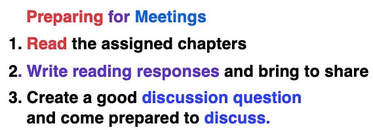
4. FACILITATING BOOK CLUB MEETINGS This is one class sample directions; the day's Focus Lesson centered on character traits) 5. ASSESSMENT a. READING: I assessed reading based on their Reader Response journals which they used for their discussions (see TALKING TEXTS and THE WRITE TO READ for my lessons and reproducible forms). b. MEETINGS: I assessed meetings by observations and by student self-assessments c. PRESENTATIONS: My GUIDELINES:
A percentage of the grade was based on the content of the group presentation and a percentage was based on individual speaking points. My typical BOOK CLUB Schedule, a sample: WEEK 1-- Monday: discuss Book Club expectations, Social Skills Focus Lesson, Book Talks and Book Passes Tuesday: Discussion Lesson (Strategy #10); distribute novels; Book Cubs meet to plan reading Wednesday: Creating Discussion Questions Lesson; Reading Time Thursday: Lesson on Book Club Procedures; Reading Time Friday: review Discussion or Social Skills Focus Lesson; Book Club Meeting #1 WEEK 2-- Monday: Literary Focus Lesson; Reading Time Tuesday: Literary Focus Lesson; Book Club Meeting #2 Wednesday: Literary Focus Lesson; Reading Time Thursday: Literary Focus Lesson; Reading Time Friday: Literary Focus Lesson; Book Club Meeting #3 WEEK 3-- Monday: Literary Focus Lesson; Reading Time Tuesday: Book Club Meeting #4 and Reading Time Wednesday: Literary Focus Lesson; Reading Time Thursday: Book Club Meeting #5 Friday: Lesson on Presentation Choices and Expectations; Public Speaking Lesson WEEK 4-- Monday and Tuesday: Book Clubs works on Presentations Wednesday; Class Presentations And strategies for LIBRARIANS who wish to start or work with BOOK CLUBS: 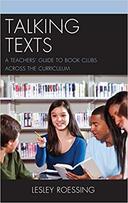 TALKING TEXTS: A Teacher's Guide to Book Clubs across the Curriculum includes classroom strategies, focus-lessons, and reproducible forms for facilitating, organizing, integrating, and assessing collaborative, small-group reading and teaching effective, supportive discussion techniques in Grade 3 through university classes—strategies that work for all types of text: novels and memoirs, short stories, informational texts and articles, poetry, folktales, and even textbooks in all content areas.
1 Comment
LOGAN FINANCE COOPERATION
4/24/2024 10:24:03 pm
Are you searching for a loan? We offer commercial and personal loans with very minimal annual interest rate as low as 2% within 1 years to 15 years repayment plans to any part of the world. our loans are well insured for maximum security kindly get back to us for your financial services via email address: [email protected]
Reply
Leave a Reply. |
AuthorSee "About Lesley" Page Archives
June 2024
Categories
|
Proudly powered by Weebly


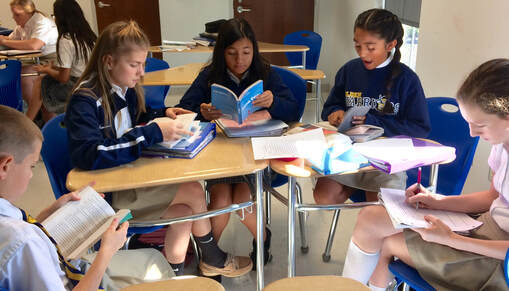
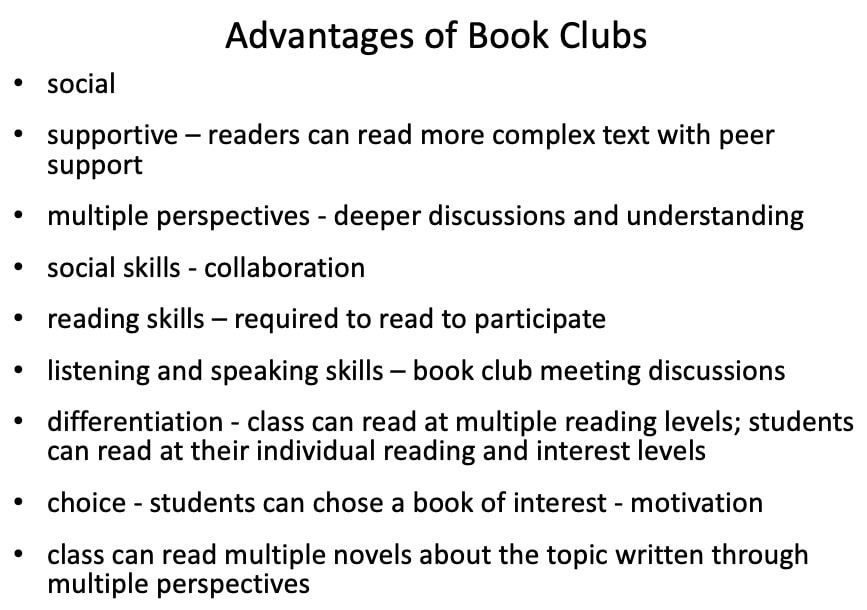
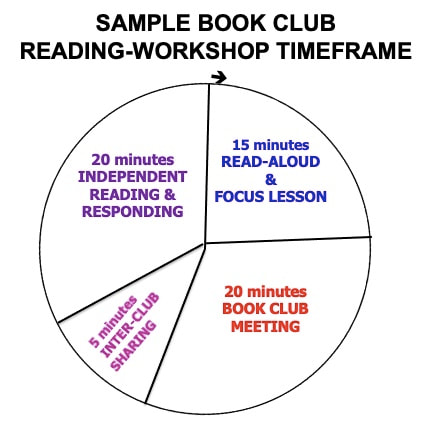
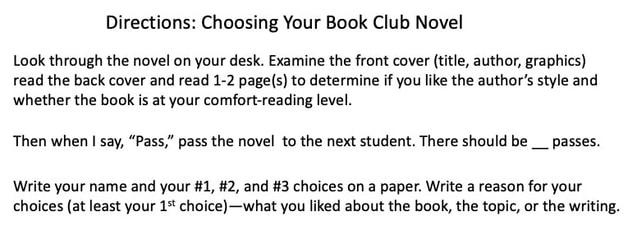
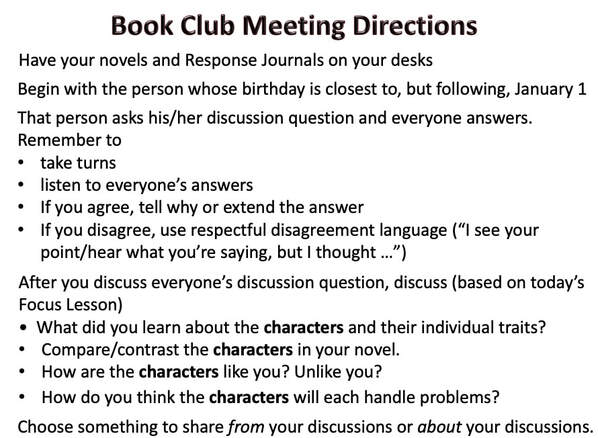
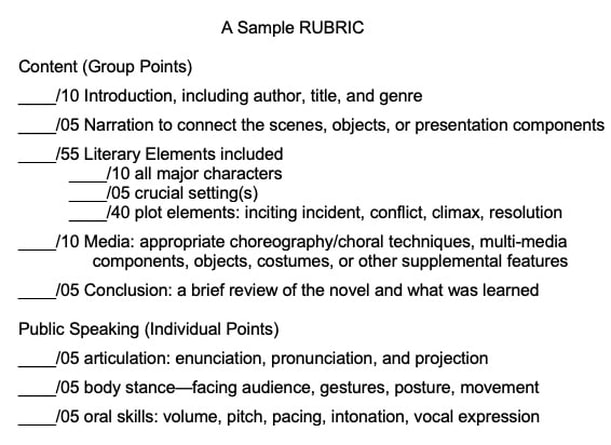
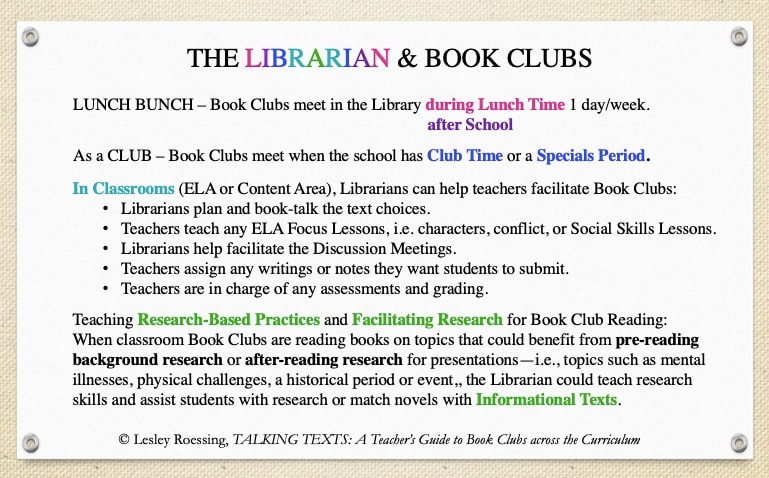
 RSS Feed
RSS Feed